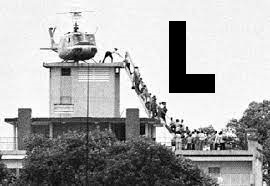https://hexbear.net/post/6355/comment/45244 <Inspired by this I guess. I'm lost frankly.
Postmodern literature is best understood as a cultural current that arose from around the 1960s-ish (continuing to current day-ish) as a reaction to Modernism. While there are many common themes, literary techniques, and styles under the umbrella of the term 'postmodern' (eg intertextuality, metafiction, poioumena etc etc), this isn't the first time that literature has engaged with those ideas, so the historical context is also as reaction to Modernism (which in turn is a reaction to Romanticism!) and its cultural current is important.
I personally use the broad definition of "Text engaging with its own artificiality" as a neat, if reductive, one-liner to describe the trajectory of literary Postmodernism.
Check out this short story: Lost in the Funhouse by John Barth (.doc download link) it's a masterpiece work of metafiction.
Also keep in mind PoMo is broadly applied (and mis-applied) across all types of fields (philosophy, feminism, literature, architecture, etc). While certainly disciplines intersect, draw inspiration from one another, and were born out of the same historical epoch (Western post-war era) it'd be a mistake to think all of these "Postmodernisms" as one singular thing with one underlying principal to tie them together.
Postmodernism is a vast and nebulous term that is essentially meaningless unless you narrow down your focus significantly. One hand it's just anything that happened after modernism which ended sometime after WWII. Or not.
On the other hand, Postmodernism is also the various developments within culture during this arbitrary time frame which maybe hasn't even yet ended, depending on who you talk to. And in this sense, you can take a look at the developments within a given field, like say, architecture and see if there are certain trends that make it characteristically postmodern.
What people usually talk about when they talk about postmoder ism as opposed to postmodern whatever is philosophical/theoretical postmodernism. Any attempt to define what this actually is a vast oversimplification of a very complex body of work written over many decades, to the point where it may not even be very helpful to try, but here goes nothing.
-Modernism generally speaking was interested in epistemology, a.k.a. how do we know what we know. Postmodernism is more concerned with ontology a.k.a. what is the nature of being. Less, "What can we know about a thing," more "What does it even mean to talk about a 'thing.'"
-The collapse of the distinction between high and low art. Think Andy Warhol with his kitschy silkscreens of Marilyn Monroe and Campbell soup cans hanging in the MOMA.
-An abiding interest in how power informs all discourse. A classic example is Foucault's History of Sexuality. The title is deliberately provocative, after all, how can you have a history of sexuality. Isn't that like having a history of eyeballs? Well, not so much. According to Foucault, the very idea of a sexuality had to be invented and brought into being through discourse before it became what we now think of as an essential quality of our very beings, and this discourse was shaped by those who had the power to speak and be taken seriously (think a lot of stern Victorian doctors).
-Bringing to the surface voices that have been historically suppressed, the queer, the female, the colonized. Works that were overlooked in their time get raised up. Other works get reexamined from fresh (non straight white male) perspectives. Lots of fights about what goes in the canon. Hemmingway takes a real beating (somewhat unfairly. Hemmingway is actually pretty queer IMO).
-The rejection of objective captial-T Truth in favor of contingent truths (this is true if we assume this and this). For a lot of postmodernism, there is no foundation upon which objective truth in the classical sense can rest. God is dead. Descartes' "I think therefore I am" only proves that thinking is happening, while the what exactly the "I" is most unclear. There is no bottom, only the shifting sands of power and discourse. The best your going to get for objectivity is the text, but that has to be interpreted.
This again, is an enormous oversimplification. But those are some very broad strokes.
EDIT: Just looked a the comment you linked. Fuck you were talking about literary postmodernism. That's a whole other post, and it's 1 AM, sorry.
If you want a Marxist interpretation of postmodernism and an attempt to crystallize its meaning in a variety of different contexts (especially literary and cultural criticism), I highly recommend Frederic Jameson's Postmodernism, or, the Cultural Logic of Late Capitalism.
This video revolves more around irony and television, but I think it just a good job of explaining postmodernism in the context of pop-culture:
So in my head I always equated post modernism with solipsism. Judging something from within it's on narrative. Just complete lib shit ignoring all context.
That might just be how people seem to use it and not the actual idea though
no, it's not solipsism and you're doing yourself a disservice by dismissing it this way. plastic pills on youtube has good, accessible introductions to a bunch of different post-modernist philosphers that can serve as a good introduction.
You know mail, the stuff a post man delivers? E-mails are not deliverd by post men, but by post-modern. Yeah.
Noone understands post modernism, dont worry. Thats why we all moved to post post modernism.

